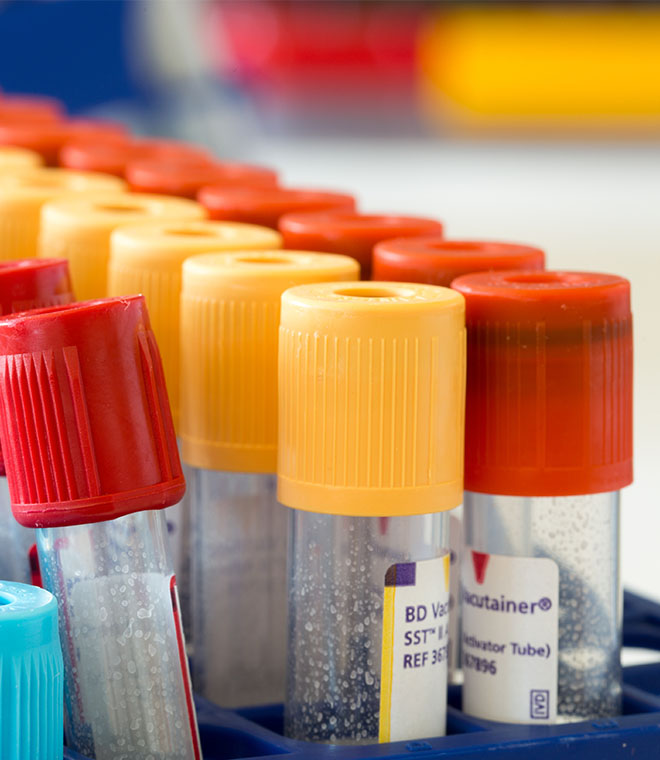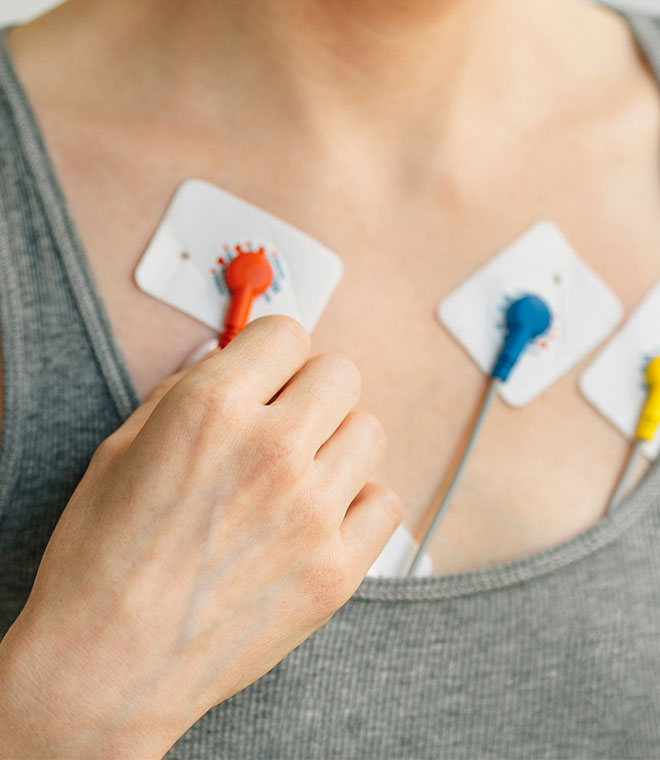Health
Lipid panel testing
By Andy Stergachis, PhD, BPharm Feb 17, 2021 • 6 min
A lipid panel is a blood test that measures the levels of lipids (cholesterol and other fats) in the blood.
It can help predict the risk of developing heart disease. Lipid disorders, such as high cholesterol, may lead to life-threatening illnesses, such as coronary artery disease, heart attack and stroke.
What is a lipid panel test?
A lipid panel is a blood test that measures the levels of several types of fats and fat-like substances in the blood. Your healthcare provider may order this test to screen for unhealthy cholesterol levels.
What does a lipid panel test for?
A complete lipid panel test typically tests for:
Total cholesterol, which measures all of the cholesterol in your blood. High levels of total cholesterol increase the risk of heart disease.
LDL cholesterol, which is the so-called "bad" cholesterol. This part of the lipid panel test measures the cholesterol in LDL particles. It is called "bad" cholesterol because it deposits excess cholesterol in the walls of blood vessels (called plaques). This reduces blood flow and can harden and narrow the arteries, which can contribute to heart disease and stroke. High levels of LDL cholesterol raise your risk for heart disease and stroke.
HDL cholesterol, which is the so-called "good" cholesterol. This part of the lipid panel measures the cholesterol in HDL particles. It is called "good" cholesterol because HDL helps get rid of LDL cholesterol, which helps to keep the arteries open and allows blood to flow. High levels of HDL cholesterol can lower your risk of heart disease and stroke.
Triglycerides, which are a type of fat in the blood. After you eat, your body converts extra calories into triglycerides and stores them in fat cells. Elevated triglycerides, along with elevated cholesterol, can increase your risk for heart disease and stroke.
Who needs a lipid panel?
In most cases, high cholesterol doesn't cause symptoms. Having a lipid panel done is the only way to know what your cholesterol levels are. When and how often you should get this test depends on your age, risk factors and family history. As a general guide, testing should be done in:
- Healthy adults—once every four to six years.
- Children—once between ages 9–11.
- Adolescents and young adults—once between ages 17–21.
- People with risk factors for heart disease—more often as directed by your healthcare provider. Risk factors include having diabetes or a family history of high cholesterol or heart disease, being overweight, eating an unhealthy diet, not getting enough exercise and smoking. Men age 45 and older and women age 55 and older also have an increased chance of heart disease.
You may also need more frequent lipid testing if you've had abnormal lipid test results in the past or if you have heart disease or take cholesterol-lowering medications. Lipid panels can help your healthcare provider monitor the effectiveness of your treatment. Ask your provider how often you need your cholesterol levels checked.
What's required for a lipid panel test?
The lipid panel test is done with a blood sample, which is usually drawn through a needle from a vein in your arm. You may have to fast for nine to 12 hours (drinking water only) before your lipid panel test. Some people may not have to fast before the test, so ask your healthcare provider how to prepare. In addition, be sure your healthcare provider knows about all medicines, herbs, vitamins and supplements you are taking, as they may affect lipid levels.
What do my results mean?
The following are general guidelines for desirable cholesterol levels:
| Total cholesterol | Less than 200 mg/dL |
|---|---|
| LDL cholesterol | Less than 100 mg/dL |
| HDL cholesterol | 60 mg/dL or higher |
| Triglycerides | Less than 150 mg/dL |
Your healthcare provider will tell you what your results mean. They may give you specific cholesterol targets based on your age, family history, lifestyle and other factors. If your cholesterol levels are too high, lifestyle changes or cholesterol-lowering medication can reduce your risk of heart problems. Together, you and your healthcare provider can decide the best treatment plan for you.
The importance of healthy lipid levels
Studies show that achieving healthy levels of lipids can help prevent heart attacks and reduce deaths from heart disease. Be sure to ask your healthcare provider if lipid panel testing is appropriate for you.
Andy Stergachis is a professor of pharmacy & global health at the University of Washington.
Published February 2021.
Sources:
1. https://labtestsonline.org/tests/lipid-panel
2. https://www.webmd.com/cholesterol-management/guide/tests-for-high-cholesterol-lipid-panel
3. https://www.mayoclinic.org/tests-procedures/cholesterol-test/about/pac-20384601
4. https://medlineplus.gov/lab-tests/cholesterol-levels
5. www.nhlbi.nih.gov/files/docs/public/heart/chol_tlc.pdf
6. https://www.cdc.gov/cholesterol/cholesterol_screening.htm



